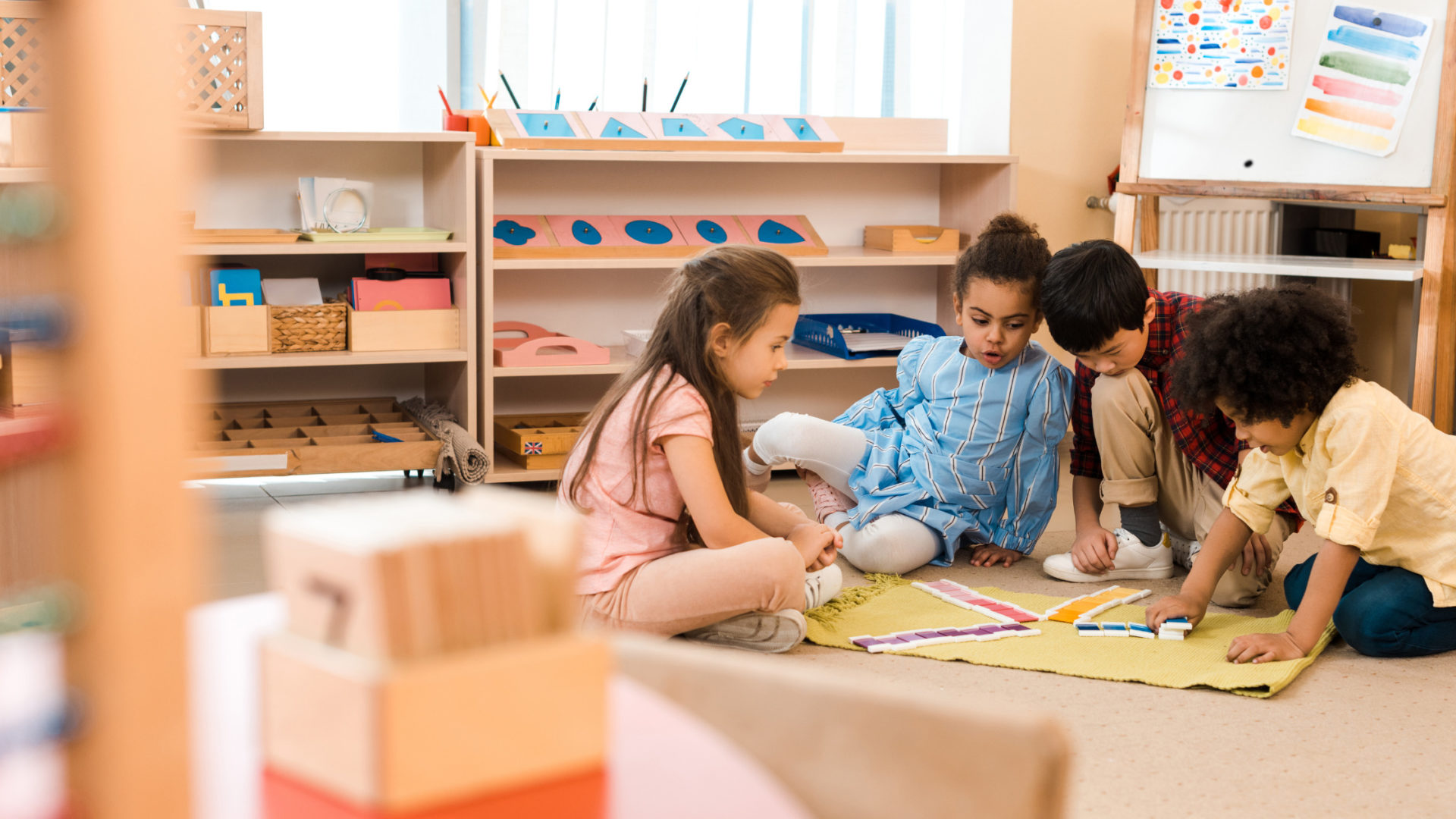Montessori education is an educational model that follows the principles established by Maria Montessori. It is a child-centered approach to education, and the methods used in Montessori education focus on nurturing children’s natural abilities and talents in an environment that encourages independence and self-directed learning. But how does Montessori education help in a child’s development?
In this article, we will talk about the fundamentals of Montessori education and its benefits, starting with outlining what it is.
What is Montessori Education?
Montessori education was introduced in 1907 by Dr. Maria Montessori, a famous Italian physician, and educator. It is a teaching and learning method that is meant to be set up in a school setting, but elements of it can also be adapted/adopted in the home.
Montessori education is a method of teaching children to develop or achieve their potential. It assumes that children are curious by nature about their surroundings and can be educated in an environment that encourages this curiosity.
The materials and activities in Montessori classrooms are designed for children to explore and learn through hands-on activities.
Teachers are called educators/guides at Montessori schools. They do not instruct a child based on the curriculum but guide and inspire them in their exploration and discovery. They provide an age-appropriate environment, learning materials, and guidance to boost their overall development.
“The teacher’s task is not to talk, but to prepare and arrange a series of motives for cultural activity in a special environment made for the child.” — Maria Montessori (in The Absorbent Mind)
This philosophy makes the Montessori method different from traditional education methods. It allows children to learn by doing and observing, which helps them develop skills such as concentration, self-discipline, and independence.
What are the 5 Key Principles of the Montessori Method?
According to the Montessori approach to education, children are the focus of the environment and activities. This encourages children to learn subjects through natural curiosity and exploration, not by the rote curriculum.
Children learn through concrete experiences, and exploration with materials directly related to their interests. They believe that all children possess innate intelligence, and the job of educators is to support it and foster its development.
Montessori education is based on 5 general principles:
1. Respect for the Child’s Need
The Montessori method is based on the principle of respect for every human being. Respect is given by allowing children to make their own choices, learn by doing, and learn for themselves. It promotes child-led learning. Conflicts are resolved peacefully and observed without judgment.
2. The Absorbent Mind
Montessori education is based on the principle that children are constantly learning from the world around them through their senses. They then make sense of it because they are the best explorers in the world. Children can develop strong neural connections through their senses, laying the foundation for future memories and knowledge.
3. Sensitive Periods
Montessori pedagogy believes that certain skills are most easily learned during specific periods of time (specific ages). This period is known as a sensitive period. A child goes through eleven sensitive periods between birth and 6 years. It includes order, movement, grace and courtesy, small objects, refinement of the senses, music, writing, reading, language, spatial relationships, and mathematics. A sensitive period lasts until a child gains a particular skill. The order in which sensitive periods occur and their timings vary from child to child. Educators and parents must identify such periods by observation. Based on the observation, a learning path must be prepared to enhance those skills.
4. Children must learn to learn
A core notion of Montessori education is that a child does not know how to learn from birth. In other words, they must follow the path of self-directed learning: pay attention, remember information, think independently, and act on their own initiative.
Montessori education philosophy asserts that a child can learn by themselves or by doing. This type of learning is known as auto-education or self-education. In Montessori education, the role of an educator is to help provide the environment, inspiration, guidance, and encouragement for children to explore and self-educate.
5. The Prepared Environment
In a Montessori school, children are provided with a classroom environment that has been “prepared” to help them learn through discovery. This is referred to as a “prepared environment.”
“The first aim of the prepared environment is, as far as it is possible, to render the growing child independent of the adult.” – Maria Montessori (in The Secret of Childhood)
The environment is always child-centered. It should promote freedom for children to explore materials of their choice. Educators should prepare the learning environment by making materials and experiences available to children in an orderly and independent manner. While designing the curriculum, these 5 principles are kept in mind. Let us now understand the Montessori benefits.
Benefits of Montessori Education to Help Your Child Succeed
Montessori education provides a holistic approach to learning and development. It offers many benefits, but here are seven ways in which it can help your child succeed:
-
- Promotes academic success: It provides children with opportunities for meaningful interactions by using a variety of materials (a true hands-on experience). Resulting in overall learning and academic success.
- Promotes social and emotional development: It provides children ample opportunity to practice various skills that promote interpersonal understanding, respectful relationships, and emotional regulation. It encourages them to work and grow with others in a community setting.
- Fosters independence, creativity, and self-control: It helps a child perform an activity/task independently and learn through discovery. Other children do not interrupt the one performing the task. They can stand and observe the child performing the task. They do not even pass any judgment on what is right or wrong.
- Fosters compassion and empathy: Montessori education teaches a child a sense of kindness and empathy. It is an approach to learning that emphasizes respect for the child and an understanding of their world. The educator takes a natural approach to teaching, which includes fostering emotional growth, compassion, and empathy in children.
- Fosters self-discipline: Montessori education instills the idea that children should be independent, self-directed, and self-controlled. It instills the idea that children should be independent, self-directed, and self-controlled. It promotes the idea that children should take responsibility for their actions.
- Promotes and supports a healthy lifestyle: Montessori schools are known for their highly individualized education. In a Montessori school, children are encouraged to pursue interests in many areas, including art, music, and science. Children here learn to eat, cook, do daily chores, read, learn, and make healthy choices, as it emphasizes a child’s sense of wonderment. It develops perseverance, courage, and resilience in children by developing both physical and mental strength.
- Develop curiosity, decision-making, and problem-solving skills: Montessori education enhances a child’s natural curiosity and allows them to discover the world around them without being overwhelmed.
- Develop executive function: Montessori education promotes the development of executive skills (a set of mental skills that includes working memory, flexible thinking, and self-control) that further help them every day to learn, work, and manage daily life.
Final Takeaway:
The Montessori approach not only boosts a child’s developmental growth but also encourages their natural curiosity. It provides varied activities that lay the foundation for lifelong learning. It is one of the most beneficial methods for teaching children of all ages.











